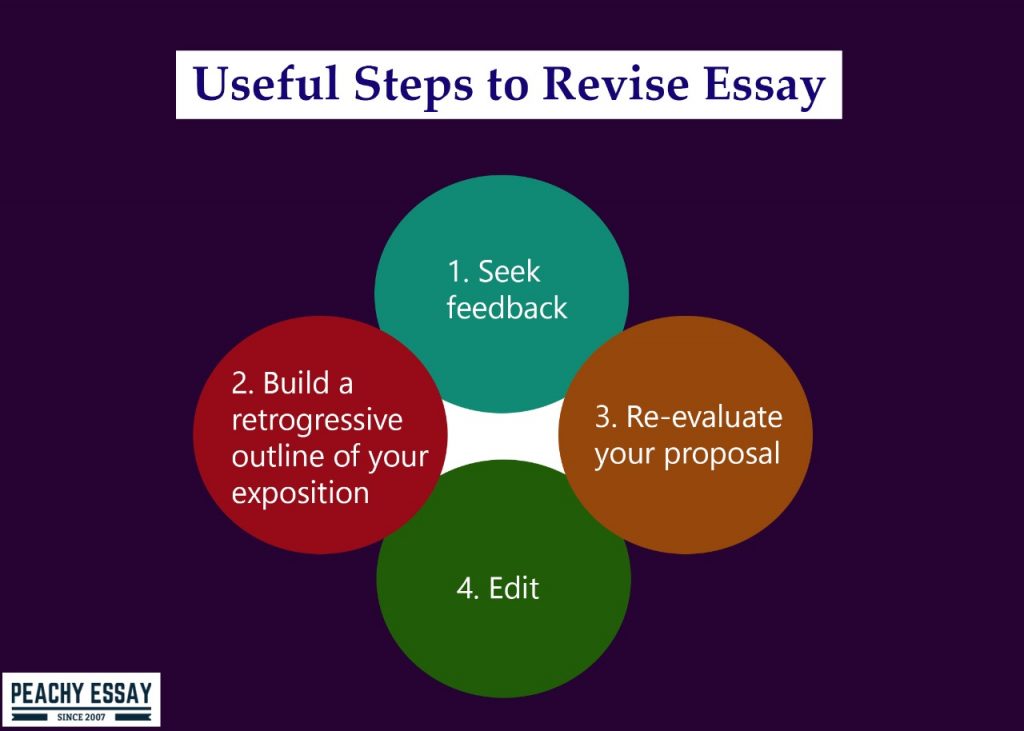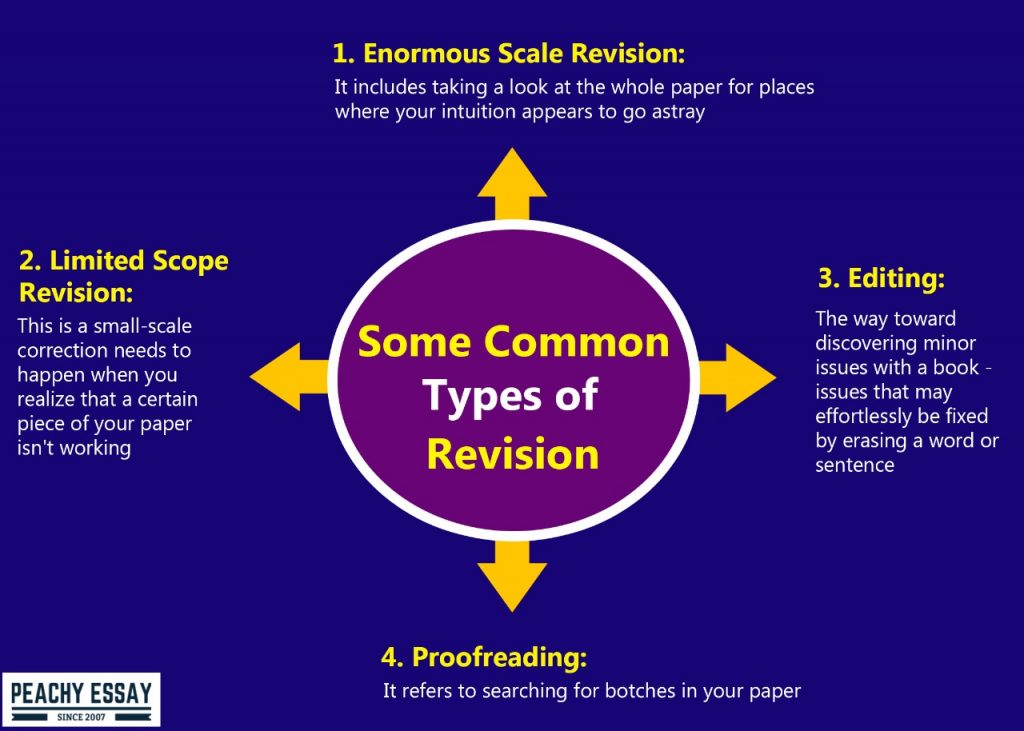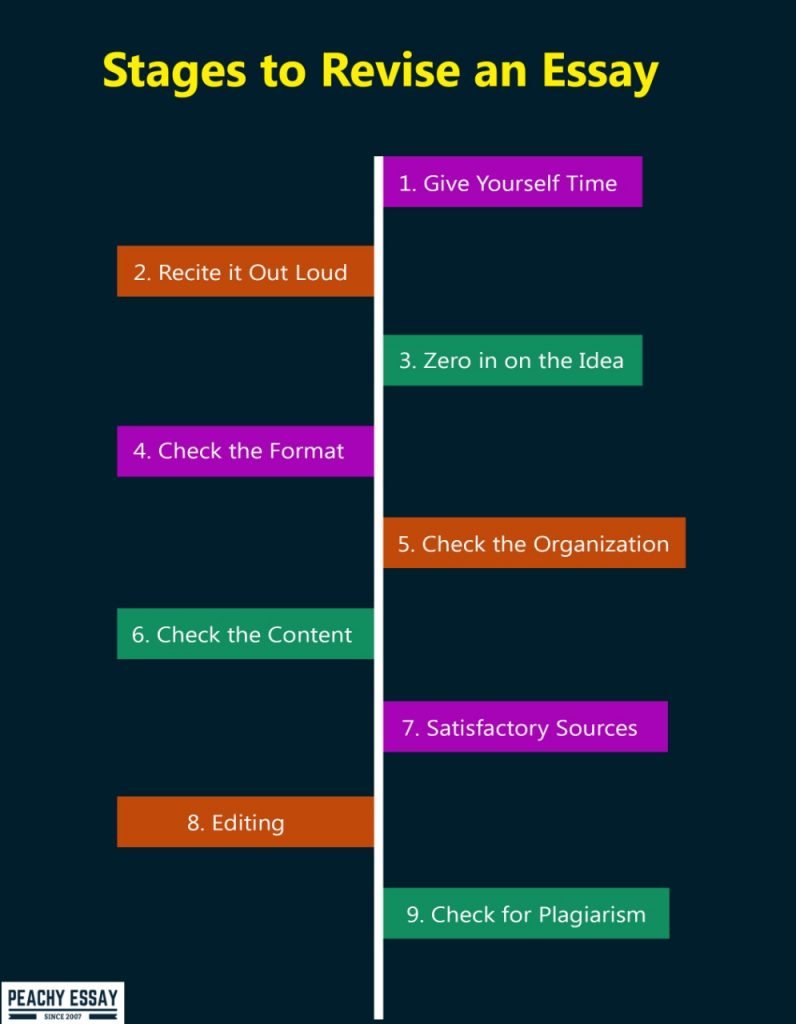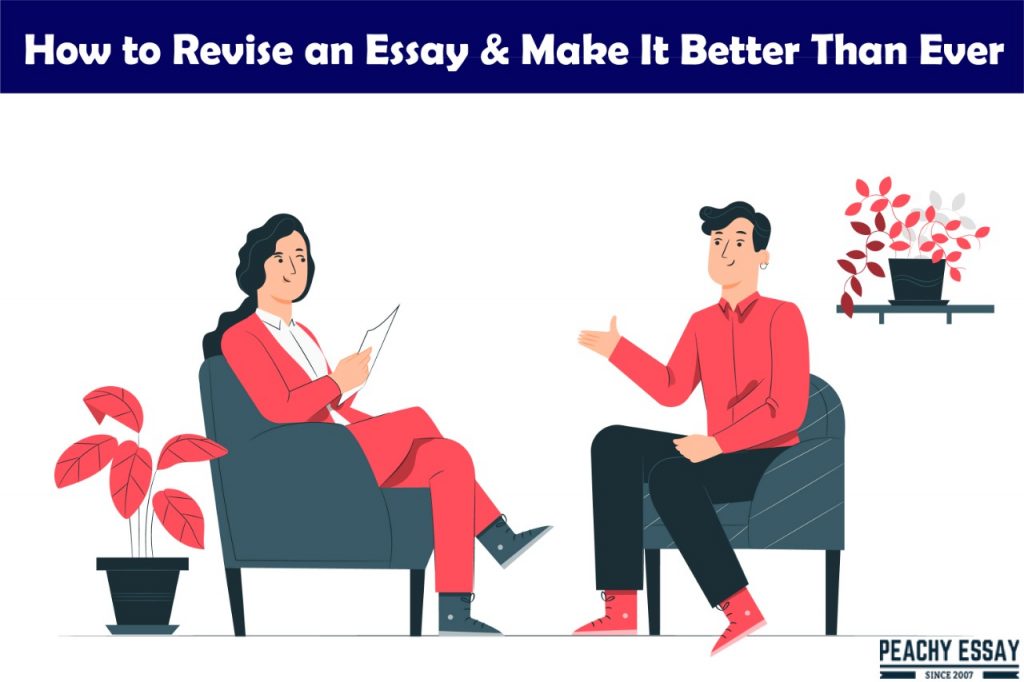Crafting an excellent paper can be an intense assignment, especially if you don’t know how to go about it. In any event, when you are done, you need to ensure you understand how to edit an article. Editing doesn’t imply that you are an incompetent author. Actually, it is pivotal to alter your composing whenever you are finished. Great composing is an after-effect of perpetual practice and persistent editing. Indeed, even the most master authors invest the energy to edit their work prior to publishing it.
In case you have a lot of time to amend, utilize the opportunity to revise your paper while you are composing. If you can disregard your draft for a day or two, you may get back to it with a new viewpoint. During the changing cycle, set you’re composing aside more than two times—once during the initial segment of the interaction, when you are rearranging your work, and once during the subsequent part, when you are cleaning and focusing on details.
Revising is a basic assignment you conduct to fundamentally improve your exposition. You may feel that a finished first draft implies little improvement is required. Be that as it may, even experienced scholars need to improve their drafts and depend on companions during modifying and altering.
In this guide, you will get in-depth information on how to revise your essay and make it better. Let’s have a look!
How to Revise an Essay
Here are some steps to how to revise an essay.

Set your draft aside
Staying away from your essay for some time will take into account more target self-assessment.
Seek feedback
Since you definitely understand what you’re attempting to say, you’re not generally the best adjudicator of where the draft is clear or indistinct. Allow another reader to advise you.
Build a retrogressive outline of your exposition
Recognize the primary ideas in each section. Rank their significance in propelling your proposition. Consider associations between and among thoughts.
Re-evaluate your proposal
In light of what you did in the past advance, rebuild your contention: reorder your points and cut redundancies. You might need to get back to the content for extra proof.
Since you understand what you’re truly contending, work on the presentation and end. Try to start your sections with topic sentences, connecting ideas in each passage to those proposed in the proposition.
Edit
Focus on exactness and economy in language. Be keen when perusing so you can detect grammar errors.
How Long Does it Take to Revise an Essay?
The time it takes to revise an essay depends on the nature of the task and the time you spent writing it in the first place. It is advisable to leave one day for revision, so you’ve adequate time to rest after crafting your paper.
Standards to Keep in Mind while Revising an Essay
Here are the principles to keep in mind while revising your essay.
Revision involves re-evaluating your thesis
Since clearness of vision is the after-effect of involvement, it is irrational to hope to concoct the ideal theory—one that obviously represents the intricacies of the current issue—prior to starting a draft, or in any event, during a first draft. Good theses; they are the results of the sort of exact reasoning that is simply conceivable to accomplish by composing. The effective modification includes bringing your proposition into centre—or transforming it significantly.
Revision involves rolling out primary improvements
Drafting is normally a cycle of finding a thought or contention. Your contention won’t become clear in the event that you just a handyman with singular sentences. Fruitful revision includes carrying the most grounded thoughts to the front of the article, reordering the central matters, cutting superfluous areas, adding suggestions. It likewise includes making the contention’s design noticeable by reinforcing point sentences and changes.
Revision requires time
Keep away from shortcuts and dedicate your time to revising your essay.
Why Revision is Important?
When doing revision, you are likely to improve your understanding and your scientific abilities. You will figure out how to challenge your own thoughts along these lines developing and fortifying your contention. You will understand how to discover the shortcomings in your composition. Despite the fact that revision requires significant investment and energy, it likewise causes you to turn into a more proficient essayist as it were.
Types of Revision
To deal with different degrees of modification, it’s essential that you start working on your papers early so you have the opportunity to make any meaningful or enormous scope updates that your paper may require. Splendid scholars additionally comprehend that correction is a continuous cycle, not really something that you do simply after your first draft is finished. You may discover, for instance, that you are stuck part of the way through the primary draft of your paper. You choose to investigate what you have up until now. As you read, you find that you’ve failed to make a point that is fundamental for the accomplishment of your contention. You reconsider what you’ve composed, making that point understood.
Here are the various kinds of revision.

Enormous Scale Revision
This sort of update includes taking a look at the whole paper for places where your intuition appears to go astray. You may have to give proof, characterize terms, or add an altogether new advance to your thinking. You may even choose to rebuild or revamp your paper totally if you find a groundbreaking thought that interests you or a design that is by all accounts more viable than the one you’ve been utilizing.
Limited scope Revision
The small-scale correction needs to happen when you realize that a certain piece of your paper isn’t working. Possibly the introductory part needs work. Possibly one piece of the contention appears to be weak. Whenever you’ve found the issue, you’ll centre on modifying that one segment of your paper. At the point when you are done, you will need to re-examine your paper, all in all, to ensure that your updates work in the setting of the whole paper.
Editing
Editing is the way toward discovering minor issues with a book – issues that may effortlessly be fixed by erasing a word or sentence, reordering a section, etc. When you alter, you are thinking about your reader. You may be content with how you’ve composed your paper; however, will your reader discover your paper clear, lucid, fascinating? Make sure your essay is concise enough for your audience.
Proofreading
Proofreading refers to searching for botches in your paper. Regular missteps discovered during proofreading include accentuation mistakes, spelling blunders, subject-verb agreement, etc. As you proofread, you need to do it slowly, permitting your eye to zero in on each word, each expression of your paper.
Steps on How to Revise an Essay
Regardless of whether you will deal with a computerized or printed copy of your task, there is a major contrast since many individuals think advanced gadgets and programming projects can take care of the relative multitude of issues. These projects can modify the significance of your words since they don’t identify with the setting in their calculations. So you need to guarantee you have a unique duplicate of your composition prior to rolling out any improvements.
In the event that you decide to modify a printed version of your exposition, you need to utilize a pen and a highlighter. This will empower you to compose remarks you can later allude to.
Here are a few stages on how to revise your essay.

Give Yourself Time
The time you take to re-examine a paper relies upon the idea of the assignment and the time you spent composing. As a rule, you should leave one day for modification so that you may have an opportunity to rest subsequent to completing your task. This gives you the energy expected to zero in on your assignment.
Recite it Out Loud
This is a pivotal step since when you are drained; your mind pulls pranks on you. You will some of the time miss a few grammatical mistakes that can change the importance of your sentences. Additionally, by reciting, you will identify obvious mistakes.
Zero in on the Idea
Bear in mind that revision isn’t just about punctuation mix-ups and grammatical mistakes. You ought to likewise consider the general turn of events and progress of your task.
Check the Format
Have you composed sufficient words? Is your composing excessively short or excessively long? Did you observe the right standards for a reference? These are significant inquiries to pose prior to presenting your assignment.
Points to Consider When Revising Your College Essay
The accompanying rules can assist you with editing your composition flawlessly:
Check the Organization
To start with, check the layout of your scholarly assignment. To compose a school paper of wonderful quality, you need to ensure you have an unmistakable introduction, body, and end. The introduction ought to give sufficient data about the fundamental thought and topic.
Check the Content
The manner in which you compose ought to be pertinent to the theme. The length of the task ought to be proper and satisfactory. You should ensure sentences are not difficult to peruse and show your insight into the theme you are expounding on.
Satisfactory Sources
Ensure you utilize dependable and important sources. You should glance through it to guarantee they are precise and contain helpful information that improves the nature of your undertaking.
Editing
Probably the best tip is to check for syntax and spelling botches. Your task ought to be free from mistakes since some can alter the purpose of your content. You likewise need to ensure you have capitalized the title and captions effectively.
Check for Plagiarism
Literary theft is unbearable in scholastic tasks. This is the reason you need to ensure you cite your sources appropriately by checking plagiarism before you submit your essay.
Tips on How to Revise Your Essay
Here are the tips on how to revise your essay.
- Scan through your exposition, highlight, and bold the first lines of each paragraph
- Peruse the bolded lines resoundingly so that others may detect any errors. As you read, you’ll most likely realize that a few sections bode well and others don’t.
- Compose another layout wherein all the lines stream together. Like a little form of your exposition. Basically, what you’ll be composing is the skeleton of the article. Think about the lines that continue in each section, the gist that fleshes out the article. Sort of a gross picture, however, whatever. The new blueprint that you make doesn’t need to definitely mirror what’s presently in your exposition – it tends to be optimistic, as such, what you need the sections to say. Whenever you’ve composed this new framework, glue the bolded lines onto a shiny new clear report.
- Revise your sections so that each passage fleshes out the point sentence. This may not seem like a sentimental/innovative method of composing an exposition; however, it works. It’ll additionally assist you with explaining what you’re attempting to say.
Also, for what reason do I propose you glue the new diagram onto another report and begin once again? So, it’ll take longer in the event that you don’t. Odds are you’ll have experienced passionate feelings for some old way that you’ve started something at the same time, whenever you’ve composed the new outline, that old method of expressing it is extinct.
- Step away from the exposition for at least half an hour. Take a walk, grab a bite, and accomplish another thing to clear your brain. Return to it and read it so anyone might hear.
- Print a printed copy of your paper. Studies have discovered that numerous individuals miss issues in their papers when they are perusing from the PC screen. Since you can’t see the entire paper on the screen, it is once in a while difficult to analyze enormous primary issues. Having a printed copy of your paper won’t just assist you with seeing these issues, yet it will give you space in the edges where you may compose notes to yourself as you read.
- Read your paper for all to hear. Here and there, you can hear botches that you don’t see. Reading loudly will help you realize when something doesn’t bode well, when sentences are so long, when accentuation has gone amiss, etc.
- Get a subsequent reader. It’s frequently hard to sort out what’s turned out badly in your own paper. This is the reason getting a subsequent reader is the most intelligent thing you can do as an essayist. A subsequent reader can do a ton for you: she can disclose to you where they got confounded or outraged, and they can offer you guidance for improving your work. Keep in mind, however: when you request that somebody read your work, you ought to be arranged for any analysis they may make. Try not to be protective; all things being equal, attempt to figure out why your reader feels as she does about your paper. Obviously, you don’t have to follow each proposal that your reader makes; however, you will absolutely benefit from their remarks and questions, regardless of whether you do choose to overlook their recommendation eventually.
- Be a subsequent reader. There could be no more excellent approach to figure out how to change your paper than to help another person amend his. You’ll see that your basic eye works much better at the point when it’s centred on your companion’s paper than it does when it’s centred on your own. You can be more targets when seeing another person’s work. You can see more effectively what’s turned out badly in a paper and how to fix it. When you practice these abilities on another person’s report, you become more adept at rehearsing them all alone.




